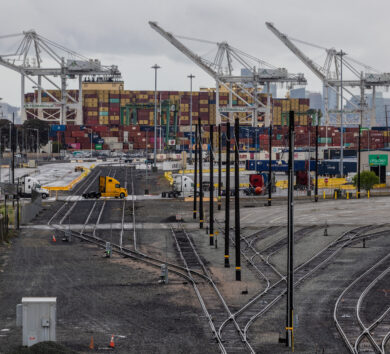

“Wars and pandemics change the world,” so said Martin Wolf, Financial Times chief economic commentator in a reflection on life after the coronavirus (COVID-19) pandemic. Part of the change we are experiencing is technological, with global integration. “The world we are moving into over the next couple of years will really be quite different from the one before the pandemic hit us.”
Martin Wolf also sees a world in which demands for social change and inclusion is rising, and the younger generations have very different attitudes and values from their elders.
“Businesses that understand the new values and meet those new demands are going to have immense opportunities, while businesses that fail to do so will perish. Periods of difficulty and turmoil in the economy and society have often generated extraordinary social changes and business opportunities. This will be no exception.”
Once we combine the social, economic, technological, and political changes that are underway and amplify them with the ecological tsunami(s) we are confronted with, we can anticipate that there will be truly no shortage of difficulty and turmoil, nor will there be any a shortage of, as Marin Wolf says, “stupendous” business opportunities.
But opportunities will not be evenly distributed – they will favour the prepared!
Since it is the boards of companies that are responsible and accountable for creating and maintaining organisations with a clear purpose that deliver long-term value consistent with the expectations of its relevant stakeholders, it begs the question: what can they do to prepare?
There are three big shifts in governance that boards need to master.
Content of governance
The work of boards has changed a lot over the course of last century – but the change currently underway is truly transformational.
For the past 30 years, since the time of Sir Adrian Cadbury’s seminal report in 1992, many thought of the boards’ work to be the direction and control of companies. It is also no coincidence that the full title of the report the committee he chaired was “Report of the committee on the financial aspects of corporate governance.”
For a long time, the financial health and the assured returns to shareholders were at the centre of governance, and therefore central to boards and companies.
Today, and even more so, tomorrow, companies will not only have to be financially viable by efficiently producing goods and services that customers purchase, but they must be able to define and account for the ultimate value they generate for specified stakeholders.

It is this ultimate value, the company’s contribution to significantly increasing wellbeing, that is at the heart of any organisation’s meaningful reason to exist – that is its purpose.
The expectations that stakeholders and rapidly more and more regulators have of companies are that they solve meaningful problems for people and planet and can demonstrate that they do not profit from creating harm. For many boards, this constitutes virgin territory for work. For able companies, this represents exciting new opportunities.
The clearer an organisation is of how and for whom it contributes what aspects of wellbeing, and the more it is in control of its environmental and social impacts, and can provide data-based assurance that the solutions it is creating are sustainable in the sense that it and others can continue to satisfy the needs of future generations, the more it will flourish. In this new era, governance is now all about the “human-based system through which organisations are directed, overseen, and held accountable for achieving its defined purpose.” (ISO 37000:2021).
Structure of governance
In order for boards to be able to lead their organisations to grasp the opportunities that are facing them, it would be critical to quickly let go of the notion that only the board governs. Boards need to master the ability to establish and maintain an integrated governance framework that coordinates the governance activities of all groups that contribute to their organisation’s governance.
The board is accountable for ensuring that there are clear roles, relationships, appropriate authority, competence, and resources; as well as controls and improvement processes established for all the organisation’s governing groups. For anyone in doubt as to who these groups might be and how constructive or destructive the relationships might be, think of the shareholder assembly, family council, line ministries, strategic business groups, and internal governance functions of organisations. Only in this way will organizations have the ability to lead their organisations through an increasingly turbulent operating context.
Process of governance
The third important shift involves both old and new governance processes. Whenever we lead board evaluations, conduct training programmes or help organizations revamp their governance systems, there are two points of discussion that invariably generate a lot of energy and cause directors to take out their phones and take pictures of the slides we are discussing: first, what are practical processes through which boards can be more outward and forward-looking; and the second is how can they increase their strategic contributions without micromanaging those to whom they have delegated.

The guidance for both questions involves four dimensions: clear intentions – why, to what end, and how does governance contribute to value generation; skills or ability to find, take, and make the role of board member effective; the right information (for e.g. on resources and variables) and decision architecture, and this increasingly involves real-time, forward-looking information from multiple points across the organisation and its wider context; and finally, the ethos and culture of the board and the organization, which separate signals from noise, and ensure effective and ethical decision-making under conditions of high uncertainty.
In view of these shifts, are you able to say how your organisation is doing? What are your governance opportunities? How prepared are you for a world in which the major asset will be the cohesiveness of your people that good governance generates?
Dr Axel Kravatzky is managing partner of Syntegra-ESG Inc., vice-chair of ISO/TC309 Governance of organizations, and the co-convenor and editor of ISO 37000 Governance of organizations – Guidance.
Comments and feedback that further the regional dialogue are welcome at [email protected]







Comments